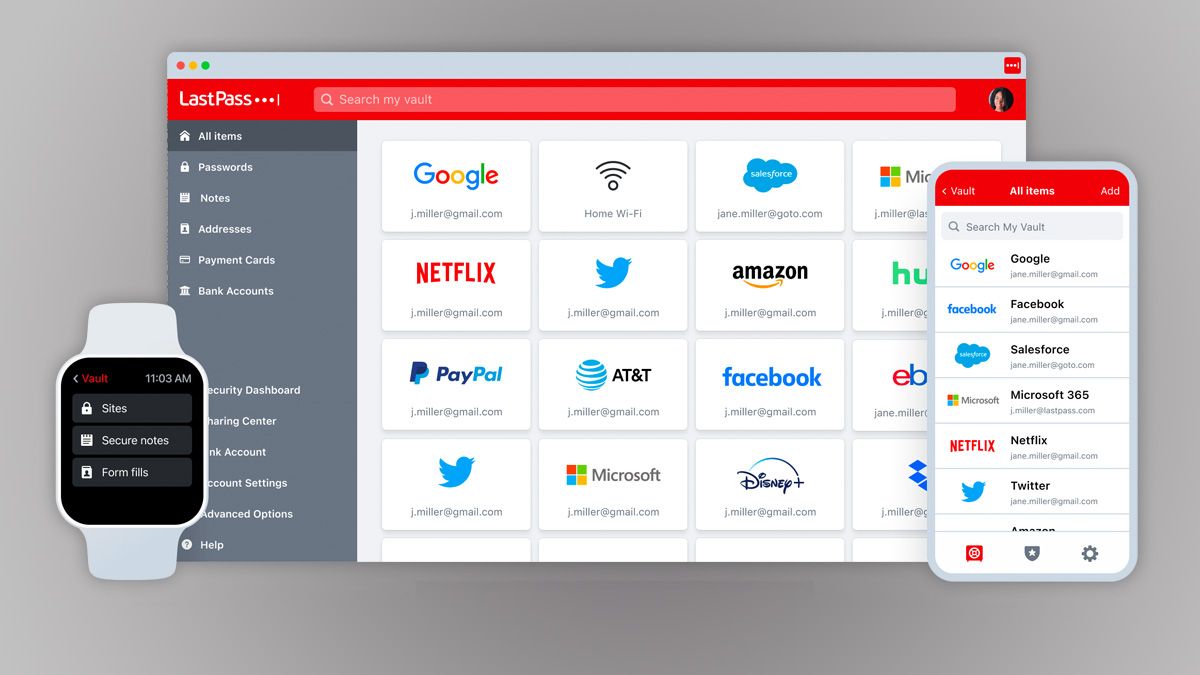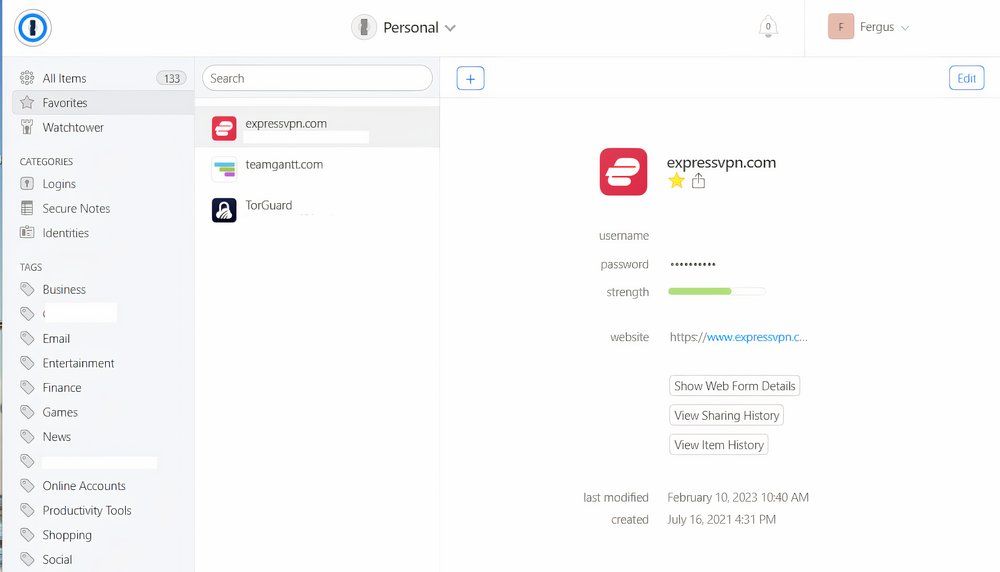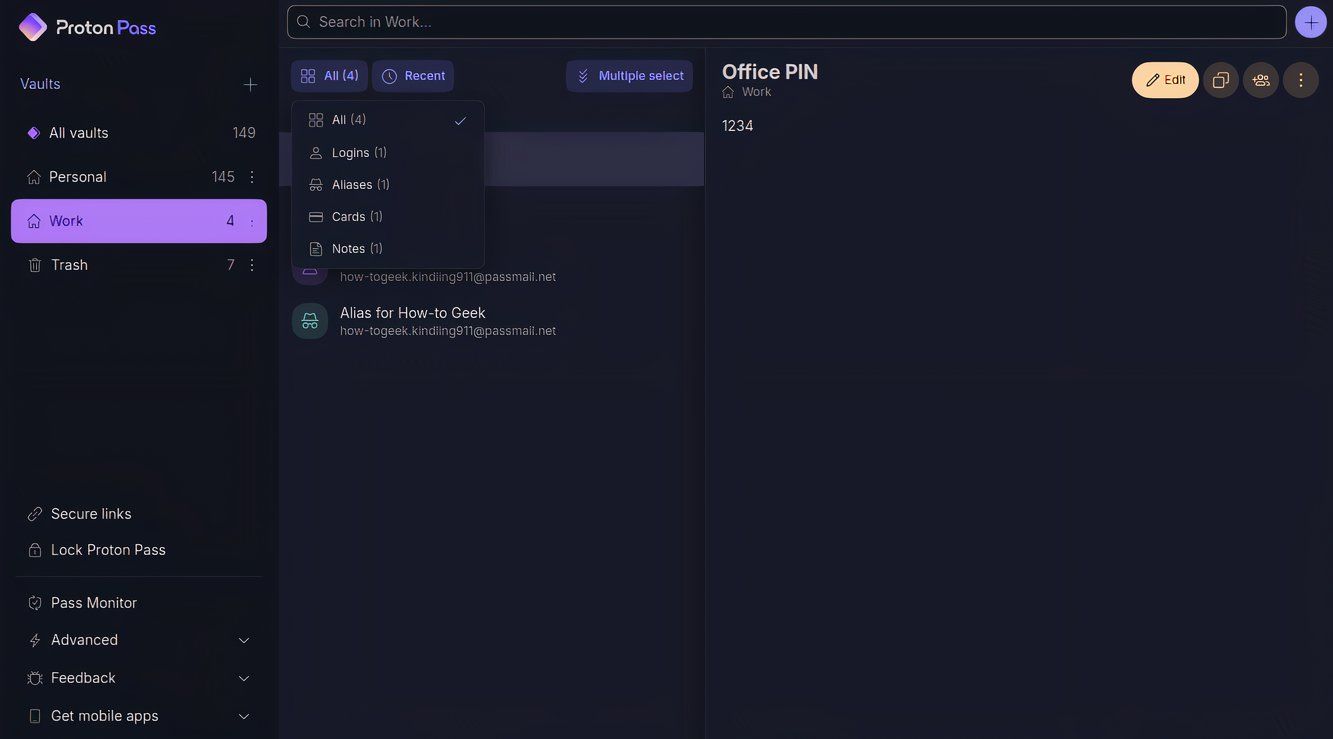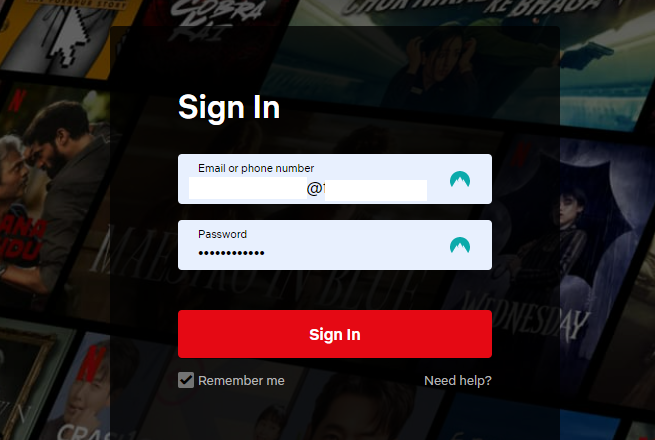Key Takeaways
- Make sure your password manager of choice has no history of security breaches.
- Price isn’t everything: look for password manager bundles with additional services like VPNs.
- Select password managers with helpful extras like autofill, passkeys, or open-source options.
Password managers are great tools that increase your security as well as your ease of surfing the web. Picking the right one for your needs can be tricky, though, especially if you’ve never shopped for one before. Here’s what you need to consider when choosing a password manager.
1. Security
First up is security. Password managers are first and foremost security tools, and need to keep your passwords and other data safe. After all, if anybody got their hands on this data, they can gain access to most of your online accounts—maybe even access your bank.
Naturally, the companies behind password managers know this and will bombard you with marketing materials espousing all the measures they have in place. This technobabble (including the worn-out claim of military-grade encryption) all looks very impressive, but there’s a better way to figure out if a company will keep your data safe: Google them.
Once you have a password manager you think you’d like, Google their name together with a word like “scandal” or “breach” and you’ll soon see if it has had any issues in the past. LastPass is a great example, as it won’t mention in its marketing materials its long and storied history of breaches and other mishaps.

Related
You Should Stop Using LastPass
The LastPass security breach from August was worse than initially reported
Currently, looking at a company’s past is the best way of predicting what may happen in the future. Unless you can look at an app’s code and understand it, there isn’t much regular people can do to determine how safe software is.
2. Price and Value
At first glance, price is a lot easier to figure out. You simply take all the password managers you’re interested in and lay them side-by-side, picking the one you can afford. The nice thing here is that as software goes, password managers are pretty cheap, it shouldn’t cost more than $40 per year or so. There are even great free password managers.
However, it’s not quite that simple. For one, different password managers offer different features. If you don’t need too many doodads, you should be able to get off cheap, while more demanding shoppers can expect to pay a little more. The price difference shouldn’t be staggering, though.
What makes things a lot more complicated are bundles, where your password manager is bundled together with other software, usually a VPN. In these cases, prices can fluctuate between extremes.
A good example is Proton, which offers its password manager, Proton Pass, at just under $24 per year by itself, or as part of a bundle with all of Proton’s other services (a VPN, email, and cloud storage) for just under $120 per year. NordVPN also has packages with its password manager, NordPass (read our review) for about $75 for the first year. Dashlane also bundles a VPN for just $60 per year.
Bundles are a great way to save a lot of money, but only if you also need the other products—and that’s assuming all products are of the same quality. Dashlane’s VPN is very basic, for example. As a result, it pays to go over what services have on offer closely, even if comparing all these plans may give you a headache.
Another thing to keep an eye out for when picking a password manager are the features they offer. As a rule, these programs are pretty bare bones, but some have some helpful extras that may make you lean one way or the other.
A great example is Dashlane’s fantastic autofill feature (which I rave about in our Dashlane review). While it’s a common feature, Dashlane does it exceptionally well. If you have a lot of password entries to keep track of, 1Password may be an interesting option for you (read our 1Password review) as it has some of the best organization features I’ve seen in the industry.
If you prefer your password managers open-source and easy to modify, you may want to check out Bitwarden or KeePass. Both offer a wealth of features and options that let you set up your interface exactly the way you’d like, or even tweak security settings, such as how to secure your vault.
You can also keep an eye out on more pedestrian features, like the ability to add credit card numbers to your password manager, or whether it lets you scribble secure notes. These are great for storing your PIN or key codes; Proton Pass handles this very well.
Another interesting feature to keep an eye on are passkeys, a form of passwordless access. These are a new but potentially revolutionary evolution of passwords. They likely won’t completely replace their forebears and currently can only be used with a handful of services. However, they’re a cool bit of tech and if you’re interested in using them you may want to choose a service that supports them, like Dashlane or Proton Pass.
4. User Friendliness
Finally, you also want to look out for how user-friendly your password manager is. Though generally you won’t be interacting with it too much—the best password managers operate in the background—there are a few things to look out for.
First is autofill. This is a vital part of any password manager and you need to make sure it works well for you. Performance can depend on device, operating system, and browser, so you may want to try out a few different providers to see how this function works.
Equally important is how the password manager manages entries. If you don’t mind passwords, credit card numbers, and secure notes all in the same pile, this won’t be an issue. However, if you like things more neat, it bears spending some time as many password managers are lacking in this regard. 1Password and Dashlane have great organization options, but they’re the only ones that stand out.
Picking the Right Password Manager
In the end, though, the best judge of what works for you is you. We recommend you try a few different services to see how they work before deciding on the one that’s best for you. We have a selection of the best password managers to help you get started.







